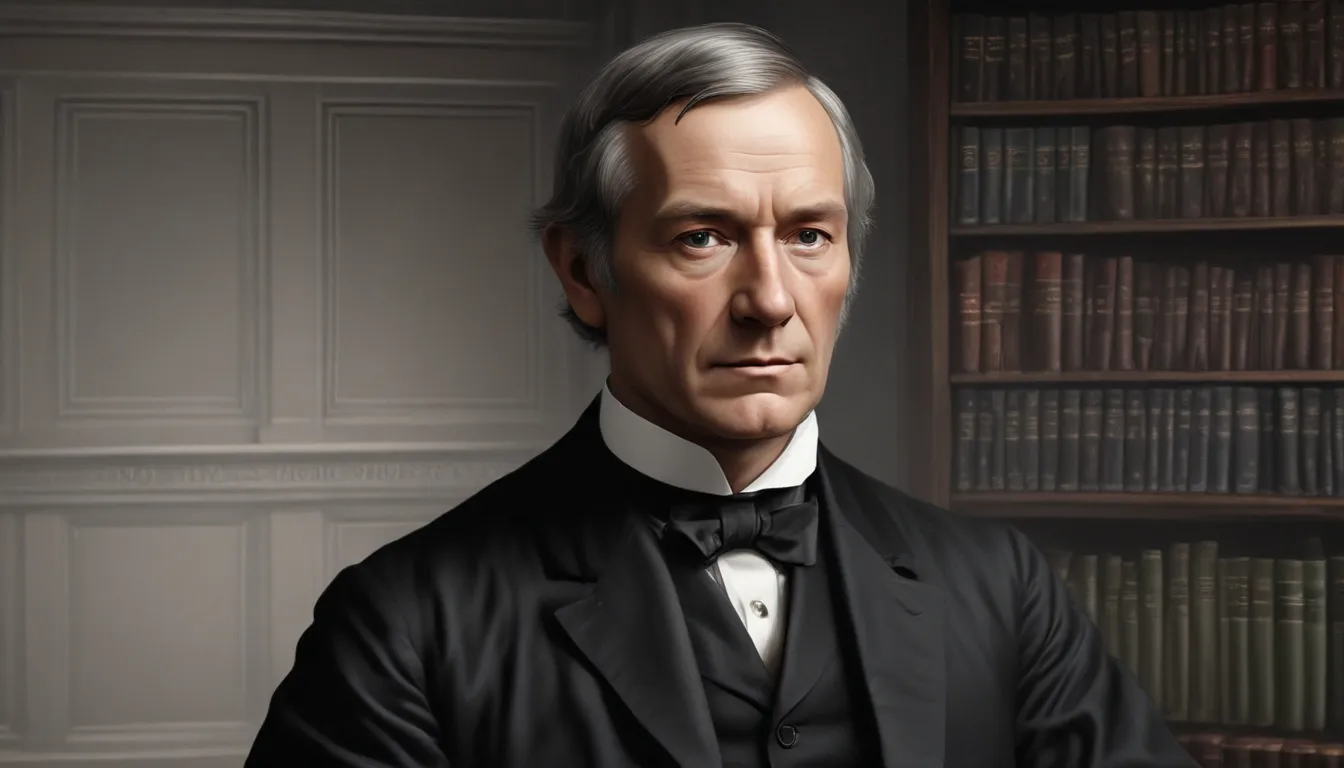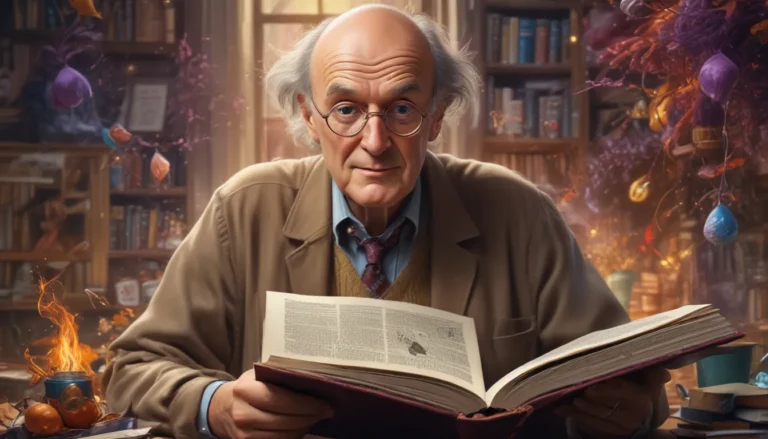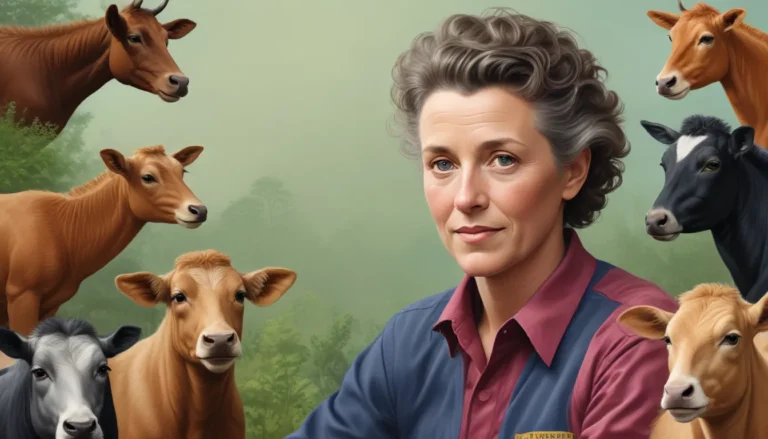The images in our articles may not match the content exactly. They are used to grab your attention, not to show the exact details in the text. The images complement the text but do not replace it.
George Boole, a prominent figure in mathematics and logic, left an indelible mark on the field of computer science with his revolutionary work. Born in 1815 in Lincoln, England, Boole’s pioneering contributions have transformed the landscape of digital computing. In this article, we will delve into nine captivating facts about George Boole that illuminate his extraordinary life and enduring impact. From his humble beginnings as a self-taught mathematician to his groundbreaking discoveries that continue to shape modern logic and programming, Boole’s legacy resonates across various disciplines.
Unveiling George Boole’s Remarkable Journey
George Boole’s journey as a mathematician and logician is a testament to the power of self-study and perseverance. Despite lacking formal education in higher mathematics, Boole embarked on a path of independent research and exploration that would ultimately redefine the boundaries of logic and computation.
The Birth of Modern Computer Science: Boole’s Revolutionary Contributions
Boole’s most significant legacy lies in his development of Boolean algebra, a system of logical operations that underpins modern computer science. By introducing algebraic methods to logic, Boole laid the foundation for digital logic circuits, binary code, and computer programming, revolutionizing the way we process and analyze information.
From Philosophy to Mathematics: Boole’s Paradigm Shift in Logical Reasoning
Prior to Boole’s work, logic was predominantly studied from a philosophical standpoint. Boole’s groundbreaking approach of applying algebraic methods to logical reasoning brought a new level of systematic and mathematical rigor to the field, paving the way for future advancements in logic and mathematics.
“The Laws of Thought”: Boole’s Enduring Legacy in Logic
In 1854, Boole published his seminal work, “The Laws of Thought,” a classic text that elucidated his theories on logic and symbolic algebraic notation. This foundational text not only shaped the study of logic but also influenced subsequent developments in the field, solidifying Boole’s status as a luminary in the realm of mathematics.
Boole’s Influence on Information Retrieval Systems
The Boolean logic introduced by Boole serves as the basis for modern information retrieval systems, including search engines. By employing binary logic and logical operators such as “AND,” “OR,” and “NOT,” Boole’s work laid the groundwork for efficient and accurate search algorithms.
Ahead of His Time: Boole’s Contributions to Probability Theory
In addition to his work in logic, Boole made significant strides in probability theory, particularly in the realm of Bayesian probability. While initially overlooked, Boole’s contributions to statistical analysis have since garnered recognition for their forward-thinking insights and applicability in diverse fields.
Respected and Revered: Boole’s Legacy as a Mathematician
Despite his lack of formal training, Boole’s innovative work garnered respect and acclaim from his contemporaries. In 1849, he was appointed as the first Professor of Mathematics at Cork College (now University College Cork) in Ireland, solidifying his reputation as a respected mathematician during his lifetime.
Beyond Mathematics: Boole’s Impact on Various Disciplines
Boole’s influence transcends the realms of mathematics and computer science, extending into diverse fields such as philosophy, linguistics, and artificial intelligence. His logical principles have left an indelible mark on these disciplines, shaping the way we approach complex problems and information processing.
Inspiring Future Generations: Boole’s Enduring Legacy
Boole’s groundbreaking ideas have inspired subsequent generations of mathematicians and thinkers, including prominent figures like Bertrand Russell. His work continues to serve as a catalyst for innovation and exploration in the fields of logic and mathematics, opening new pathways for intellectual discovery.
In conclusion, George Boole’s legacy as a pioneer in logic and mathematics remains unparalleled in its impact and significance. His contributions to Boolean algebra and logical reasoning have shaped the foundation of modern computer science and information processing. Boole’s work not only transcends disciplinary boundaries but also serves as a timeless beacon of inspiration for aspiring mathematicians and innovators.
FAQs: Exploring George Boole’s Legacy
Q: Who was George Boole?
A: George Boole was a British mathematician and logician renowned for his development of Boolean algebra, a cornerstone of modern computer science.
Q: What is Boolean algebra?
A: Boolean algebra is a mathematical system that deals with binary variables and logical operations like AND, OR, and NOT. It forms the basis of digital logic circuits and computer programming.
Q: What were George Boole’s contributions to logic?
A: George Boole’s main contribution to logic was the introduction of Boolean algebra, enabling the symbolic representation and manipulation of logical expressions with algebraic methods.
Q: How did George Boole influence computer science?
A: George Boole’s work on Boolean algebra revolutionized computer science by laying the groundwork for digital logic circuits and computer programming, transforming the way information is processed and analyzed.
Q: What is the significance of George Boole’s legacy?
A: George Boole’s legacy lies in his groundbreaking work in logic and mathematics, which continues to impact diverse fields like artificial intelligence and philosophy. His enduring contributions have reshaped the landscape of intellectual inquiry and problem-solving.
Embark on a journey of discovery and exploration as we delve into the captivating world of George Boole and his profound impact on logic and mathematics. Join us in unraveling the intricate tapestry of Boole’s legacy and witness firsthand the transformative power of his ideas in shaping our modern world.






